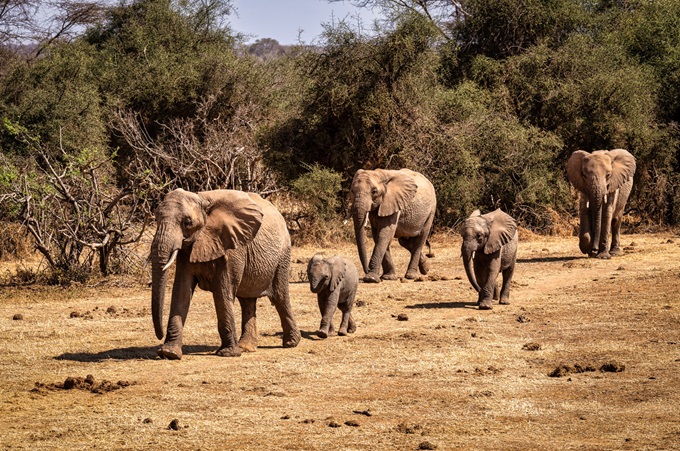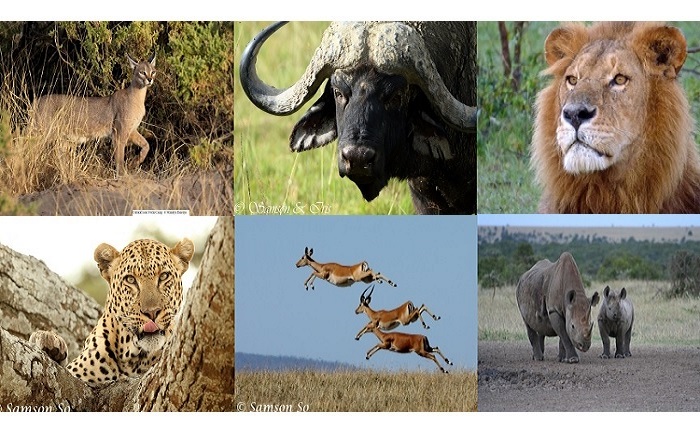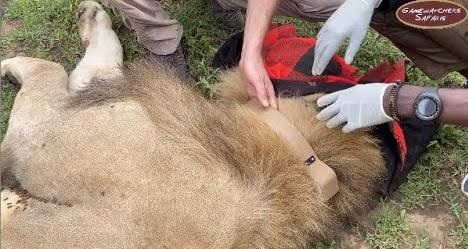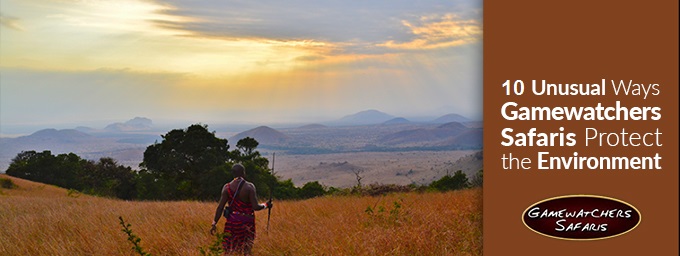
We’ve talked about our commitment to protecting the animals and their habitat through the conservancy concept—and we’re pleased to have been able to help in protecting the local wildlife and to support local communities.
But Gamewatchers Safaris is also committed to sustainable, environmentally friendly tourism and cultural preservation at the micro level, right here in our Porini camps. Take a look at 10 ways we are taking concrete steps to protect the environment while still giving you an exclusive, authentic safari experience.
1. Let’s start with drinking water. Did you know we recycle and repurpose glass wine bottles decorated with locally made beadwork to serve drinking water in our guest tents and avoid plastic bottles?
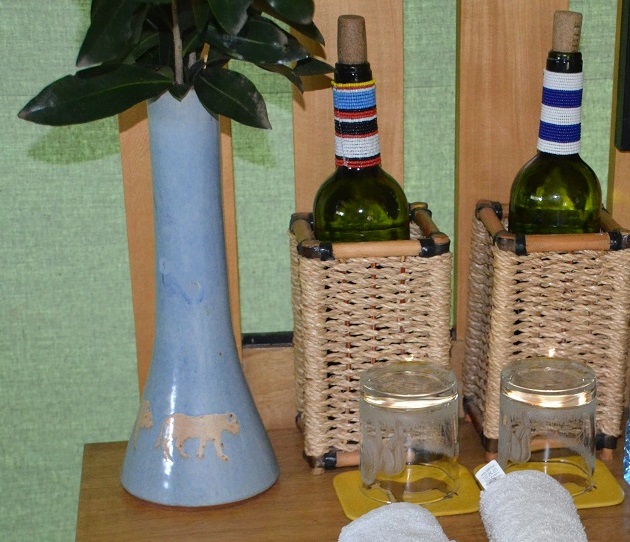
Plastic water bottles might be more convenient, but we don’t believe convenience is worth the damage to the environment. Did you know that the energy costs of producing, transporting, and disposing plastic water bottles are equal to actually filling each of those bottles one-quarter full of oil? Or that the production of one pound of plastic for disposable water bottles releases three pounds of CO2 into the environment?
We prefer to take small but meaningful steps to reduce our carbon footprint—and give our local artisans a source of income by serving your water in a more environmentally sustainable way. This means we can reduce the number of small plastic bottles and use a large re-usable water dispenser instead to top up our bottles.
It’s why we give you a personal reusable aluminum bottles to take with you on our game drives, too.
2. Speaking of water, let’s talk about safari showers, and water conservation.
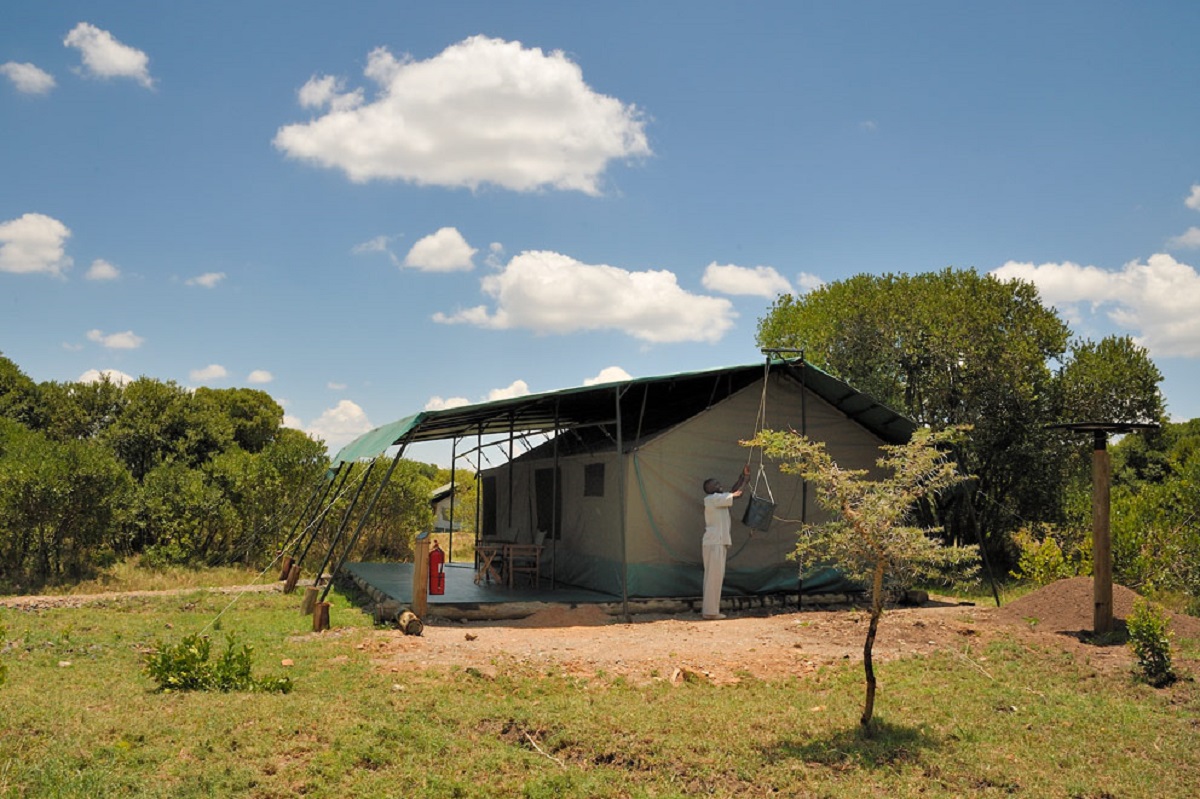
In Maasailand water is considered a very precious resource by the local community so we aim to conserve water as much as possible. At our Porini camps, we use “bucket showers”, also known as “safari showers” in the guest tents’ en-suite bathrooms to avoid wasting water.
The safari shower? It’s a unique part of the safari experience—but it’s designed to conserve our precious natural resources. We use 20-liter bucket showers because we know water conservation is essential to living in harmony with our environment. (Even our flushing toilets are specially adapted to save water—our water conservation policy affects every aspect of safari camp life).
3. We buy food and supplies in bulk to reduce our carbon footprint and use reusable storage containers to cut down on paper and cardboard waste.
Did you know that 17% of the world’s carbon emissions are directly related to food—its production, transport, storage, preparation? The good news is that we can cut our overall emissions by 20% to 30% when we shop in bulk and store our food in reusable containers. It’s just another common sense measure to limit the environmental impact of our eco-friendly safaris.
4. Oh yes, and we also “buy local” as much as possible when it comes to food for our staff and guests.
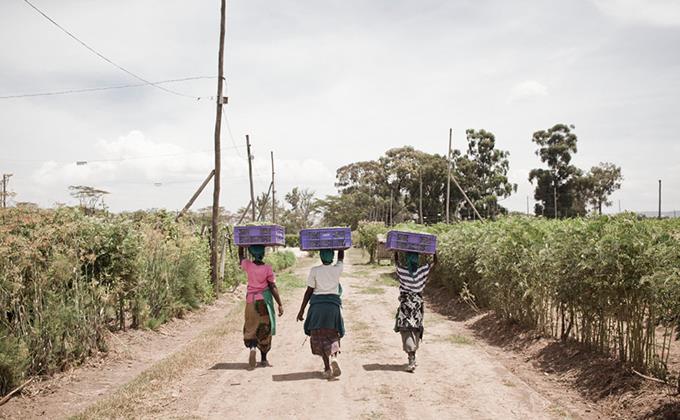
There are lots of good reasons to buy local—
- It decreases the environmental impact of transporting food.
- It supports local communities.
- It looks and tastes better.
- It protects biodiversity—large-scale agriculture genetically selects based on high production, while small, local farms protect and cultivate local, natural plant species.
At our Porini Mara camp, for example, we have a contract to purchase local milk, honey, and meat for our staff from the local community each week. And we always look for ways to support our Kenyan farmers and ranchers when we supply our camps.
5. The reason why our guest tents are mobile with no cement or permanent structures? (The answer: It reduces our environmental “footprint”and keeps us close to nature)
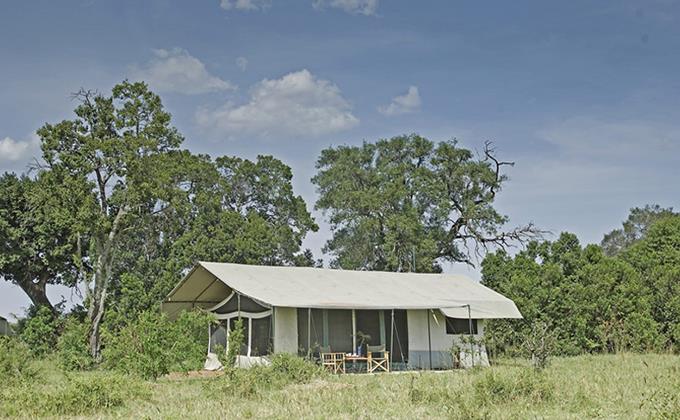
Our Porini Camps are spacious mobile safari camps with no permanent structures and as shown in the picture above at Porini Lion Camp, we use traditional canvas guest tents that could be taken down and removed, leaving the site as it was before we put up the camp. We aim to preserve the natural landscape and allow the surrounding vegetation to flourish.
And if you’re wondering why we don’t fence our camps? Well, that’s also related to preserving the local ecosystem. Without fences, wildlife can roam freely in accordance with natural grazing patterns, which keeps native vegetation in balance so it can continue to sustain our wildlife—like the elephants that were finally able to return to Selenkay after a decades-long absence soon after we established the Selenkay Conservancy.
6. You think your city has crazy recycling rules? You should see our voluntary waste recycling and composting policies.

We put a lot of effort into sensibly and sustainably managing our waste. We carefully separate out metals, plastics, paper, and glass and store it in secure, wildlife-proof containers and then send it all back to Nairobi for re-cycling. This protects our local bird and wildlife population from consuming any harmful substances.
We compost all our organic waste and ensure that it is all fully covered and inaccessible to wildlife so that we avoid having open pits which might attract wild animals to scavenge.
We are careful to ensure that sewage is conveyed to an underground septic tank for each tent so that it is treated and does not pollute the groundwater.
7. We don’t use generators and our lighting is all from solar power. With no blazing lights in our camps we also avoid light pollution.

We have avoided relying on generators to provide power to the camps. Instead we have opted for a GREEN solar power system which provides all lighting to the tents. The solar panels charge a series of solar batteries and a step-up transformer converts this to 220v. We also run our radio communication equipment from this as well as providing outlets to charge guest appliances such as laptops, phones and camera batteries. The camp kitchen refrigeration is also powered by solar or by gas fridges.
Night-time light pollution affects about 80% of the globe—and the endless Kenyan skies are even in danger of losing their natural luminosity. Night-time light pollution also hurts nocturnal wildlife, disrupting their normal sleep, wake, and feeding cycles.
So while in our camps at night you can also feel good that our solar lighting is protecting the natural rhythms of our local wildlife.
8. Speaking of lights, we use LED lights in our camps because we don’t like wasting energy.
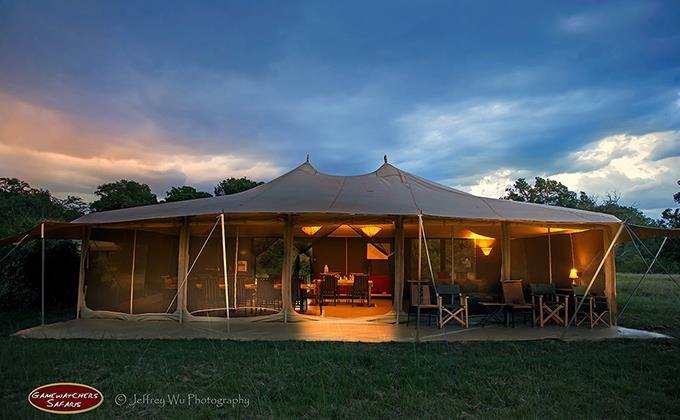
Here’s a startling fact: Incandescent and fluorescent bulbs waste 95% of their energy consumption producing heat and just 5% actually producing light. LED lights, on the other hand, are exactly the opposite—just 5% of their energy use is wasted in heat and 95% goes to producing light.
Less energy use means fewer greenhouse gas emissions—about 80% fewer when you switch to LEDs.
9. Let’s talk about Kuni briquettes and why you should care about them.
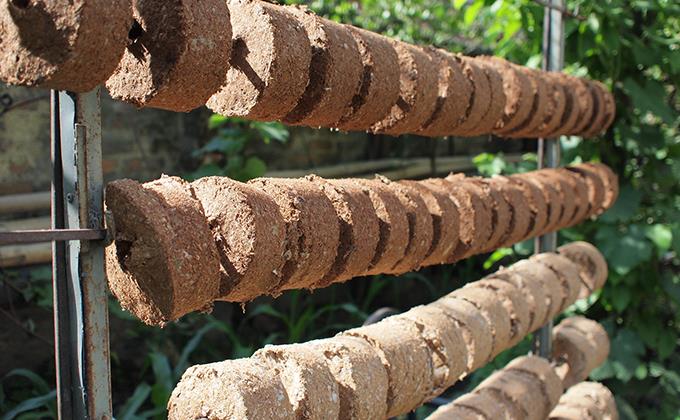
Charcoal and firewood have been the traditional choice for heating and cooking—but they place an extraordinary burden on the environment. In fact, tree harvesting is one of the largest environmental challenges we face.
Kuni briquettes are an ingenious solution to the problem. They are compressed blocks of sawdust, rice husks, straw chaff, and other easily combustible natural materials that don’t rely on felling trees. And as an added bonus, many local communities are producing and selling Kuni briquettes—which means we are supporting local economies and improving the lives of local families when we use this sustainable fuel choice for our camp heating and cooking needs.
10. Visiting a Maasai village is a fascinating experience—but it also encourages the community to support our conservation mission (which is also good for the environment).
The Maasai are pastoral people who live with their livestock on the savannah grasslands in harmony with nature. For guests staying at our Porini Amboseli Camp, part of the activities programme is an escorted visit to a nearby Maasai village just outside the Selenkay Conservancy – one of the highlights of our eco-friendly safaris.
This is an authentic village typical of the scattered homesteads found throughout Maasailand. There is no entry charge payable at the village as Porini Amboseli Camp already pays a monthly fee to all the members of the village for allowing our visits. The community welcome our guests who may take photographs freely without any charge. Our guests are asked not to offer cash to the people or sweets to the children as we do not wish to disrupt their way of life and we respect their traditions. Instead, for anyone interested in helping the local communities, we have some projects that aim to make a positive difference to people’s lives. The village visit helps the community to benefit from having the Conservancy on their land and this encourages community support for conserving wildlife habitat.
Final thoughts…
We believe that we must carefully shepherd our natural resources and protect our local environment as much as possible—it’s the only responsible way to provide our guests with an authentic safari experience.
And our efforts have won us some of the most prestigious travel awards, like our World Travel Awards, EcoWarrior Awards and TripAdvisor Awards.
Why not see for yourself how a safari can be both exciting and sustainable? Contact us today and our team will help you plan the ultimate eco-friendly safari.
Or, if you are still researching your options then sign up for our free 6-part How to Book A Safari email series and discover how to make the most out of your time and budget.
on Monday 29th May 2017 at 02:26



